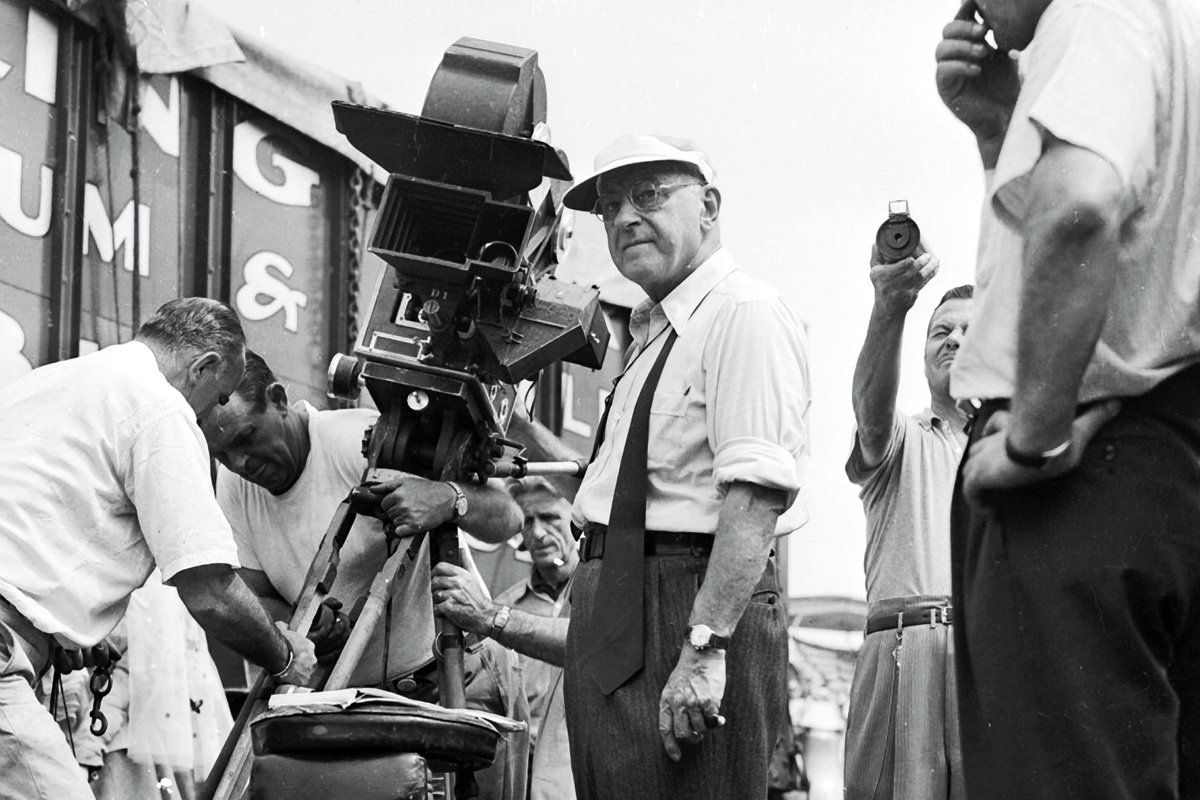
In 1926, while filming The King of Kings, director Cecil B. DeMille moved his cast and crew to Catalina Island, off the coast of California. There, while shooting the Galilee and loaves-and-fishes sequences, he housed everyone in tents to promote a sense of community on the project.
Not everyone was happy with the tents, including H. B. Warner, the actor playing Christ. One day, in the middle of a scene, a yacht sailed into camera range. When an enraged DeMille learned that the yacht belonged to his leading man, he said, "If I thought Mr. Warner needed a yacht, I'd have brought my own. Just who does he think he is?"
"Jesus Christ, sir," replied a crew member.
DeMille digested this and then said, "That puts me at something of a disadvantage, doesn't it?"
Mark it down as one of the very few times anyone ever got the better of Cecil B. DeMille.
The superb film historian Scott Eyman includes this anecdote in his admiring and exhaustive new DeMille biography, Empire of Dreams, a life of the man who, as much as anyone, forged our idea of Hollywood. Here and elsewhere, Eyman labors to unlock the contradictions in DeMille's puzzling personality, or at least to put some flesh on the legend. Good as Eyman is, it's uphill all the way. DeMille was a master showman onscreen and off. No one ever worked harder to mold a public mask or keep it in place. He ruled with a despot's hand and a hambone's instincts. From his knee-high boots right up to the megaphone through which he communicated to his casts of thousands, he cultivated an image of dashing, unquestionable authority. Nearly all of our clichés about imperious movie directors come straight from him.
Struggling to penetrate DeMille's façade, Eyman never gets much beyond establishing that the filmmaker was an autocrat on the set and a kindly man at home (albeit one with three mistresses). But there is almost no time—or reason—to tabulate flaws. Told at a breakneck pace, Empire of Dreams resembles nothing so much as a DeMille movie—gaudy, corny, and enthralling.
For an unparalleled half century, DeMille was one of the most powerful, successful producer-directors in Hollywood. And yet, on contemporary lists of great directors, he often goes unmentioned. His historical and biblical epics, with their strange brew of piety and prurience, are no longer the fashion. And his right-wing bullying during the blacklist era only cemented the image of an out-of-step reactionary with nothing to offer a modern audience.
His fellow directors are wiser about DeMille's accomplishments. Martin Scorsese claims that only Steven Spielberg knows as much as DeMille about manipulating crowds onscreen. Better yet, DeMille at his best always knew how to make a movie move. The special effects in The Ten Commandments look clunky today, but the story never flags. Every scene sets up the next, and the film holds your interest whether you like it or not (and yes, it's always worth waiting around for Anne Baxter to deliver one of the great howler lines in cinema history: "Oh, Moses, Moses, you stubborn, splendid, adorable fool"). Cecil B. DeMille was a storyteller of genius—a genius without shame, but a genius just the same.
Uncommon Knowledge
Newsweek is committed to challenging conventional wisdom and finding connections in the search for common ground.
Newsweek is committed to challenging conventional wisdom and finding connections in the search for common ground.





